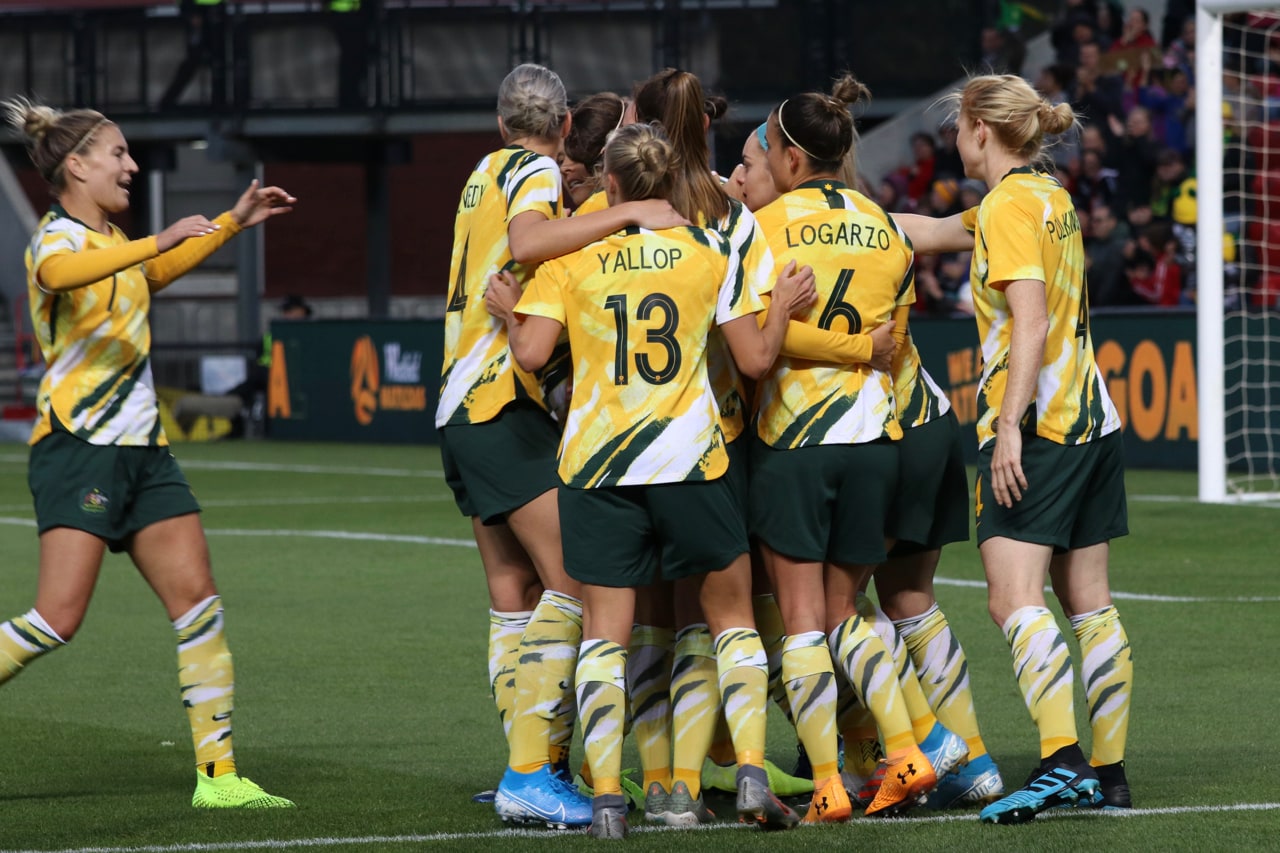In July 2023, Australia will host the world’s biggest ever women’s sporting event.
The 736 best female footballers from the top 32 nations on the planet will converge to produce the most grandiose FIFA Women’s World Cup of all-time.
Led by Sam Kerr, Steph Catley, Ellie Carpenter, Caitlin Foord, Mary Fowler and company, the Matildas will be box office – selling out stadiums and breaking broadcast records.
The Matildas commence with the July 20 opener against Ireland, shifted to the 80,000-capacity plus Stadium Australia to enable more fans to attend. If only they had a 500,000-seat stadium.
If the Matildas create history, winning a maiden World Cup trophy – the final is at Homebush on August 20 – it will become one of the most iconic Australian sporting moments of all-time.
But 31 other nations will also attract bumper crowds and significant interest.
That the tournament has not attracted greater press yet in Australia is surprising. Make no mistake, come July, Australia – and co-hosts New Zealand – will be gripped by World Cup fever.
Whilst investment in women’s sport investment is growing (2022 saw a global sponsorship increase of 20% YoY according to a SponsorUnited study, which revealed that Australia-bound US striker Alex Morgan is the most endorsed female athlete), women’s sporting assets remain undervalued.
The quality and interest levels are growing rapidly, and July’s FIFA tournament will be a watershed moment, displaying the impact of UEFA and European clubs’ significant investment uplift in recent years – which is behind the Matildas’ collective European exodus.
For companies and brands looking to associate with the World Cup and women’s football, opportunities still exist.
FIFA’s Chief Women’s Football Officer Sarai Bareman last week declared the Women’s World Cup the second-biggest sporting event on the planet, behind the men’s version.
The FIFA World Cups are a commercial behemoth that continue to attract furious bidding wars.
The spin offs for Australian sport and the local women’s movement will be multi-fold. FA expects hundreds of thousands more females participating post World Cup, and Brianna Davey (AFLW) and Ellyse Perry (Australian cricketer who played for the Matildas at the 2011 World Cup) demonstrate that football – with its technical focus – is a sport that lays great foundations and enables athletes to also pursue other sports.
The World Cup will undoubtedly inspire a new generation to take up sport, a timely boost with the COVID aftermath still wreaking mental and physical havoc with Aussie youth.
The investment in localised sports such as AFLW and NRLW is admirable, but the women’s movement will be more profound if tapping into the global 8 billion population than merely Australia’s 26 million.
The Liberty A-League, which rebadged from the W-League in 2021, will benefit with a host of World Cup players likely to stick around for an historic season that will expand to 12 teams.
Coupled with an emerging batch of young talent that will become the new generation of Matildas, the underrated domestic competition will flourish, with the addition of Central Coast Mariners.
Australia is sometimes guilty of being insular. If we care about our global standing, then this World Cup presents the biggest international promotional opportunity since Sydney 2000, with FIFA anticipating a global TV audience of 2 billion.
The Megan Rapinoe and Morgan-led USA will arrive with tens of thousands of fans, Euro 2022 champions England will have parochial support and among the favourites, despite the recent home defeat to the Matildas.
Then there will be the underdog yarns, such as The Reggae Girlz, who have a fascinating connection with Bob Marley. Cedella Marley, the daughter of Bob and Rita Marley, a Grammy Award winning artist and CEO of Bob Marley Group of Companies, remains a strong supporter of the team after rescuing them in 2014.
FIFA has come to the party, tripling prize money, to USD$110 million (AUD$164m) from $30m ($44.75m) in 2019, with a further $30m allocated to preparation and $11m ($16.4m) to clubs with players involved.
Euro 2022 was a watershed moment for women’s football and all the metrics, including ticket sales, indicate that Australia/NZ will smash those numbers.
Australians are in for a sporting treat from July 20.
To find out more, enquire here.

